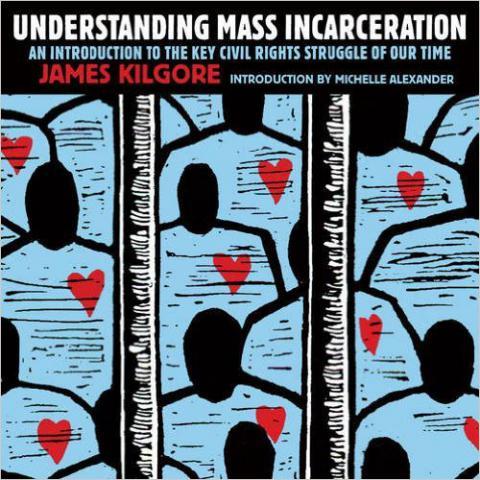David Swanson's Blog, page 61
September 23, 2015
Does the Pope Know a Boy Is About to Be Crucified?
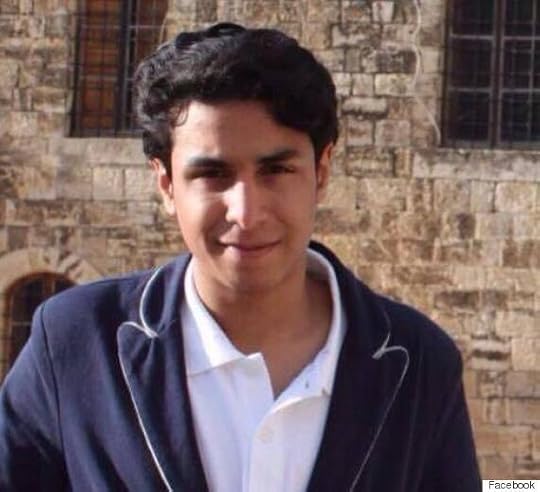 The Pope will speak to Congress on Thursday. No other institution on earth does more to destroy the habitability of the planet for future generations. Will the Pope raise his concerns with them or only when he's thousands of miles away?
The Pope will speak to Congress on Thursday. No other institution on earth does more to destroy the habitability of the planet for future generations. Will the Pope raise his concerns with them or only when he's thousands of miles away?
No other institution sells and gives as many weapons to the world, participates in as many wars, or invests remotely as much in planning, provoking, and pursuing war after war. Will the Pope speak up for abolishing war in the U.S. Capitol or only when he's nowhere near the leading maker of war on earth?
As Nicolas Davies documents in a forthcoming article, when the U.S. has reduced military spending, the world has followed. When it has increased, the world has followed. The Pope wants nuclear weapons eliminated. Will he mention that to the leading investor in nuclear weapons?
Occasionally a particular variety of horror serves to catch people's attention. The boy in the photo at right has been sentenced to be crucified. His crime was participation in a pro-democracy rally. Now he will have done to him what the Pope's religion says was done to Jesus Christ. He won't be smiling blissfully like a Christ on a crucifix either. He will suffer immense pain and torment, and then die.
Who would do this? Why, Saudi Arabia, of course. And who is Saudi Arabia's chief ally, weapons provider, and oil customer? Why, the United States Congress.
Is it possible that this particular murder can arouse action among all of those moral leaders in the United States so desirous of being followers that they're focusing all attention on the Pope?
And if this murder can attract attention, what about all the others? During the course of a brutal civil war in Syria in which all sides have slaughtered numerous innocents with all variety of weaponry, we've been advised at certain points to be indignant over the use of chemical weapons or beheadings. But we don't seem to have managed to carry that over to the full range of murder going on.
Saudi Arabia is dropping bombs, including U.S.-made cluster bombs, on Yemen, slaughtering children by the hundreds. Saudi Arabia is brutalizing the people of Bahrain, not to mention the people of Saudi Arabia. Saudi Arabians are funding ISIS and other murderers in the region. Are all of these murders acceptable even if the crucifixion isn't? Or can we seize this opportunity to build opposition to all murder? Or might we if the Pope mentions it to Congress? 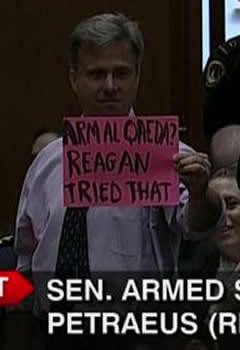
On Tuesday the Senate Armed Services Committee brought in David Petraeus to testify yet again on how to escalate more wars. Petraeus recently proposed arming al Qaeda. Senator John McCain gave Petraeus credit on Tuesday for extending the Iraq war from 2007 to 2011. Petraeus noted that the whole region is in horrible turmoil. Nobody made any connection between the U.S. wars on Iraq and Libya that have created that turmoil and the results. Nobody questioned the wisdom of using more war to try to repair the damage of war.
Well, a few of us did. The wonderful CodePink was there as always. I was there with a sign that said "Arm al Qaeda? Reagan tried that."
The mad men who run the U.S. government have reached the point of re-arming the enemies of enemies whose blowback first drove them to radically escalate the global murder of innocent people in the name of opposing terrorism while increasing it.
The National Campaign for Nonviolent Resistance had an answer to this on Tuesday, taking a protest of endless war and environmental destruction to the gate of the White House.
The Secret Service arrested the people in the photo below rather than accept a letter from them articulating their opposition to policies of massive cruelty to the earth and its inhabitants.
The Pope has the opportunity to speak that same message to Congress and to the U.S. corporate media. Will he use it?
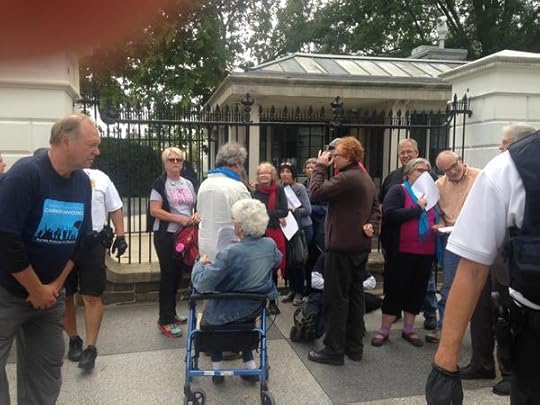
September 21, 2015
Talk Nation Radio: Khury Petersen-Smith on Black Solidarity with Palestine
Khury Petersen-Smith is an activist who lives in Boston. He traveled to Gaza in 2009 as part of the Viva Palestina medical relief delegation. He also traveled to Iraq on a peace delegation in 2004. His organizing and writing focus particularly on Black liberation, Palestine solidarity, and U.S. empire. He was an organizer of a new statement of black solidarity with Palestine: www.blackforpalestine.com
Also find him here: http://facebook.com/black4palestine and here: http://twitter.com/black4palestine
Total run time: 29:00
Host: David Swanson.
Producer: David Swanson.
Music by Duke Ellington.
Download from Archive or LetsTryDemocracy.
Pacifica stations can also download from AudioPort.
Syndicated by Pacifica Network.
Please encourage your local radio stations to carry this program every week!
Please embed the SoundCloud audio on your own website!
Past Talk Nation Radio shows are all available free and complete at
http://TalkNationRadio.org
and at
https://soundcloud.com/davidcnswanson/tracks
September 18, 2015
Join us in DC on Tuesday
SOWING THE SEEDS OF HOPE: FROM CONGRESS TO THE WHITE HOUSE
Join us at an event organized by the National Campaign of Nonviolent Resistance in Washington, D.C. on Tuesday, September 22, 2015
Part of a week of actions with Campaign Nonviolence.
CONGRESS
Meet in cafeteria in Longworth House Office Building at 9:00 am.
Together we will go to Paul Ryan's office at about 10:00 am.
Bring packets of seeds and photos or news articles of issues you would like to address i.e. war, climate crisis, poverty, institutionalized violence etc.
Leave Ryan's office around 11:00 or 11:15.
Take public transportation to Edward R. Murrow Park – 1800 block of Pennsylvania Ave. NW
12:00 Noon RALLY AT THE PARK
WHITE HOUSE
We will proceed together from the park to the White House.
We'll hear speakers at the White House, read a letter sent to Obama, and some will protest even at risk of arrest but others need not do so.
Sign up here: https://www.facebook.com/events/1681885392045454/
September 16, 2015
Where there were massacres there are now power plants
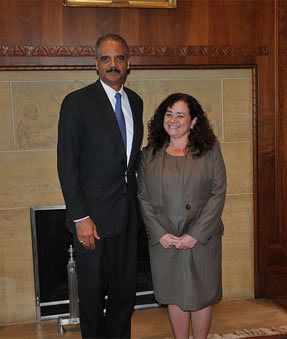
In the United States it's hard to imagine admiring an attorney general. The words call to mind people like Eric Holder, Michael Mukasey, Alberto Gonzales, John Ashcroft, Janet Reno, and Edwin Meese. There were those who fantasized that Barack Obama would not prevent an attorney general from prosecuting top officials for torture, but the idea of a U.S. attorney general prosecuting a U.S. president for war/genocide doesn't even enter the realm of fantasy (in part, because Americans don't even think of what the U.S. military does in the Middle East in those terms).
For a lesson in daring to imagine equality before the law, we can turn our eyes toward Guatemala. Here's a country suffering under the Monroe Doctrine since the dawn of time, a place where the United States engaged in human experimentation giving syphilis to unwitting victims during the time that U.S. lawyers were prosecuting Nazis in Nuremberg. Guatemala had a relatively decent government in 1954 when the CIA overthrew it. U.S. destruction has been unremitting in Guatemala, with the U.S. government backing dictators, killers, and torturers, including during the 1980s and 1990s, a period from which Guatemala is still trying to recover.
A new film called Burden of Peace tells the story of Claudia Paz y Paz, Attorney General of Guatemala from December 9, 2010 to May 17, 2014. Paz y Paz had a poster of Robert Kennedy on her wall during her time as attorney general, herself finding something admirable in a U.S. holder of that same office. Kennedy's actual record was quite mixed, of course. Paz y Paz became attorney general following a long period of unaccountable crime, understood impunity, and rampant corruption.
"Where there were massacres there are now power plants," says one voice in the film. "Where there were massacres there are now mines." People had been killed in large numbers for money, and those responsible would be protected from prosecution as well.
A 1996 peace agreement did not end violence in Guatemala. The government remained corrupt, with killers still holding positions of power.
It's interesting to imagine what would happen if a true reformer were made president or attorney general in the United States, while their staff and colleagues and Congress and the courts and the system of bribery and lobbying remained unchanged. It will be fun to watch Jeremy Corbyn try to take on the British Parliament. We have an example of how this works from Guatemala.
In Burden of Peace we see Claudia Paz y Paz meeting with an office of attorneys in a northen province that had solved zero murder cases and prosecuted almost no one. She insists on change. And she gets it. For over three years she achieves big increases in prosecutions and convictions, including of gang members, including of police officers.
This law-and-order heroism should appeal to Americans if they can overlook the fact that the United States helped cause the problem. I have a mixed reaction. I can't be totally thrilled watching a SWAT team arrest gang members. This is not truth and reconciliation, but force and degradation. And yet I recognize that in a state of lawless violence it will be difficult to address other problems and solutions unless the violence is addressed first. Paz y Paz, in fact, reduced crime rates as solved murdered cases increased from 5% to 30%.
She had previously worked on the first big investigation of crimes committed during the civil war in Guatemala, which accused top military and political leaders, inlcuding the head of state, of genocide. Bishop Juan José Gerardi presented the report to the public and was murdered the next day. You see a big crowd taking part in his funeral in footage included in the film.
In her second year as AG, Paz y Paz reopened the investigation of war crimes. Soon she would issue warrants for the arrest of Oscar Mejia Victores, former Secretary of "Defense," for genocide. But because of his age and health, he was not tried.
Paz y Paz continued to increase law enforcement, as Otto Perez Molina, a former military official, was elected president. Business elites wanted Paz y Paz not to prosecute military members. In fact they wanted her removed from office. But she held a four-year term and refused to leave early.
During the dictatorship of Rios Montt, Mayans had been murdered in large numbers. He was not held accountable. He enjoyed immunity as president of Congress until 2012. Then Paz y Paz prosecuted him for genocide. In Burden of Peace we see the trial, including survivors recounting the horrors of soldiers killing and raping, as the accused sits and listens.
His lawyers declare the trial illegal and rise and leave, leaving him sitting there alone. The trial is suspended, then reconvened with new lawyers. The elderly Montt is convicted and sentenced to decades in prison. We see the people of Guatemala celebrating.
And then a higher court overturns the sentence, and people protest to no avail. But Montt spends only one day in prison, and the rightwingers acquire a taste for blood. They pursue Paz y Paz. Seeking to block her from completing her fourth year in office, they charge her with abuse of power (although they publicly focus on accusing her of being a Marxist). The same court that overturned the sentence for Montt removes Paz y Paz from office.
She appeals, and we see a crowd cheering her at the appeal. She tries to run for reelection, and a court denies her that right. It's over. She is out of office, and we see her staff as well as the public cheer for her, tearfully, as she departs, fleeing the country with her husband and son because she will no longer have security guards.
This is a true story that ends in May of 2014, crying out for a sequel. But earlier this month, Molina was forced to resign as president, after prosecutors accused him of running a scheme to defraud the customs service of millions of dollars, and Congress stripped him of immunity from prosecution. This was a first in Central America, as was much of what Claudia Paz y Paz did. It begins to appear that she was part of a change in the culture of Guatemalan governance, that the idea of holding the powerful to account has actually caught on.
Perhaps she will return to Guatemala one day. Perhaps peace will return to Guatemala one day.
Imagine if the United States were to leave Guatemala alone and try following its example in the U.S. Justice Department.
September 15, 2015
What if Americans Had Known in 2013 that U.S. rejected Syria Deal in 2012?
In the United States it is considered fashionable to maintain a steadfast ignorance of rejected peace offers, and to believe that all the wars launched by the U.S. government are matters of "last resort." Our schools still don't teach that Spain wanted the matter of the Maine to go to international arbitration, that Japan wanted peace before Hiroshima, that the Soviet Union proposed peace negotiations before the Korean War, or that the U.S. sabotaged peace proposals for Vietnam from the Vietnamese, the Soviets, and the French. When a Spanish newspaper reported that Saddam Hussein had offered to leave Iraq before the 2003 invasion, U.S. media took little interest. When British media reported that the Taliban was willing to have Osama bin Laden put on trial before the 2001 invasion of Afghanistan, U.S. journalists yawned. Iran's 2003 offer to negotiate ending its nuclear energy program wasn't mentioned much during this year's debate over an agreement with Iran -- which was itself nearly rejected as an impediment to war.
The Guardian reported on Tuesday that the former Finnish president and Nobel peace prize laureate Martti Ahtisaari, who had been involved in negotiations in 2012, said that in 2012 Russia had proposed a process of peace settlement between the Syrian government and its opponents that would have included President Bashar al-Assad stepping down. But, according to Ahtisaari, the United States was so confident that Assad would soon be violently overthrown that it rejected the proposal.
The catastrophic Syrian civil war since 2012 has followed U.S. adherence to actual U.S. policy in which peaceful compromise is usually the last resort. Does the U.S. government believe violence tends to produce better results? The record shows otherwise. More likely it believes that violence will lead to greater U.S.-control, while satisfying the war industry. The record on the first part of that is mixed at best.
Supreme Allied Commander Europe of NATO from 1997 to 2000 Wesley Clark claims that in 2001, Secretary of War Donald Rumsfeld put out a memo proposing to take over seven countries in five years: Iraq, Syria, Lebanon, Libya, Somalia, Sudan, and Iran. The basic outline of this plan was confirmed by none other than former British Prime Minister Tony Blair, who in 2010 pinned it on former Vice President Dick Cheney:
"Cheney wanted forcible 'regime change' in all Middle Eastern countries that he considered hostile to U.S. interests, according to Blair. 'He would have worked through the whole lot, Iraq, Syria, Iran, dealing with all their surrogates in the course of it — Hezbollah, Hamas, etc.,' Blair wrote. 'In other words, he [Cheney] thought the world had to be made anew, and that after 11 September, it had to be done by force and with urgency. So he was for hard, hard power. No ifs, no buts, no maybes.'"
U.S. State Department cables released by WikiLeaks trace U.S. efforts in Syria to undermine the government back to at least 2006. In 2013, the White House went public with plans to lob some unspecified number of missiles into Syria, which was in the midst of a horrible civil war already fueled in part by U.S. arms and training camps, as well as by wealthy U.S. allies in the region and fighters emerging from other U.S.-created disasters in the region.
The excuse for the missiles was an alleged killing of civilians, including children, with chemical weapons -- a crime that President Barack Obama claimed to have certain proof had been committed by the Syrian government. Watch the videos of the dead children, the President said, and support that horror or support my missile strikes. Those were the only choices, supposedly. It wasn't a soft sell, but it wasn't a powerful or successful one either.
The "proof" of responsibility for that use of chemical weapons fell apart, and public opposition to what we later learned would have been a massive bombing campaign succeeded. Public opposition succeeded without knowing about the rejected proposal for peace of 2012. But it succeeded without follow-through. No new effort was made for peace, and the U.S. went right ahead inching its way into the war with trainers and weapons and drones.
In January 2015, a scholarly study found that the U.S. public believes that whenever the U.S. government proposes a war, it has already exhausted all other possibilities. When a sample group was asked if they supported a particular war, and a second group was asked if they supported that particular war after being told that all alternatives were no good, and a third group was asked if they supported that war even though there were good alternatives, the first two groups registered the same level of support, while support for war dropped off significantly in the third group. This led the researchers to the conclusion that if alternatives are not mentioned, people don't assume they exist — rather, people assume they've already been tried. So, if you mention that there is a serious alternative, the game is up. You'll have to get your war on later.
Based on the record of past wars, engaged in and avoided, as it dribbles out in the years that follow, the general assumption should always be that peace has been carefully avoided at every turn.
Talk Nation Radio: James Kilgore on Understanding Mass Incarceration
James Kilgore discusses his new book, Understanding Mass Incarceration: An Introduction to the Key Civil Rights Struggle of Our Time.
Total run time: 29:00
Host: David Swanson.
Producer: David Swanson.
Music by Duke Ellington.
Download from Archive or LetsTryDemocracy.
Pacifica stations can also download from AudioPort.
Syndicated by Pacifica Network.
Please encourage your local radio stations to carry this program every week!
Please embed the SoundCloud audio on your own website!
Past Talk Nation Radio shows are all available free and complete at
http://TalkNationRadio.org
and at
https://soundcloud.com/davidcnswanson/tracks
September 14, 2015
Bernie Sanders Again Insists That Saudi Arabia Should Kill More People
Senator Bernie Sanders taped a PBS show at the University of Virginia on Monday. I had corresponded with the host Doug Blackmon beforehand, and offered him ideas for questions on military spending and war, questions like these:
1. People want to tax the rich and cut military spending, which is 54% of federal discretionary spending according to National Priorities Project, but you only ever mention taxing the rich. Why not do both? What -- give or take $100 billion -- is an appropriate level of military spending?
2. Do you agree with Eisenhower that military spending creates wars?
3. Can you possibly be serious about wanting to keep the wars going but have Saudi Arabia play a bigger role? Do you approve of Saudi Arabia dropping U.S. cluster bombs on Yemen?
4. Would you approve of John Kerry promising Israel $45 billion of free weapons over the next decade?
5. Jeremy Corbyn was just elected leader of the Labour Party. He wants to pull out of NATO. Do you? He wants to unilaterally disarm of nuclear weapons? Do you? He wants to end drone murders and wars. Do you? Are you both socialists?
Blackmon at the very end asked Sanders to say something about foreign policy. Sanders replied with the 2002 Iraq vote. Then Blackmon mentioned Saudi Arabia, including its slaughter in Yemen, but rambled on until it became an unrelated softball. Sanders nonetheless brought it back to Saudi Arabia and insisted that Saudi Arabia should "get their hands dirty" and take a much bigger role in a war against ISIS and generally lead the wars with U.S. support.
Who has dirtier hands than Saudi Arabia? Is this some kind of a sick joke?
After the taping of the show, a member of the audience asked "But how will you pay for it?" What the "it" was went unstated, but presumably it wasn't the military which is considered cost-free in such discussions. Sanders answered with progressive taxation. No mention of the military.
Later in the audience Q&A, Sanders brought up Eisenhower without mentioning the military.
Here are tips for future interviewers of Bernie Sanders:
As you know, Bernie Sanders focuses on money issues, taxing the rich, spending on the poor, but has thus far been permitted to engage in the general practice of speaking only about the 46% of federal discretionary spending that it not military.
Nobody has asked him about the 54% that by the calculation of National Priorities Project is military. Nobody has asked him if Eisenhower was right that military spending produces wars. Here are 25,000 people who want to know whether and how much Sanders would want to cut military spending.
He's silent on the public support for two, not one, great sources of revenue: taxing the rich (which he's all over) and cutting the military (which he avoids).
When he is asked about wars and says Saudi Arabia should pay for and lead them, nobody has followed up by asking whether the wars are themselves good or not or how the theocratic murderous regime in Saudi Arabia which openly seeks to overthrow other governments and is dropping US cluster bombs on Yemen will transform the wars into forces for good. Since when is THAT "socialism"?
If you go to Bernie's website and click on ISSUES and search for foreign policy it's just not there. He recently added the Iran agreement, after the fact, in which statement he says that war should "always be on the table" even though the U.N. Charter ban on threatening war makes no exception for candidate websites.
If Senator Sanders were to add anything about war in general to his website, judging by his standard response when asked, it would be this:
The military wastes money and its contractors routinely engage in fraud. The Department of Defense should be audited. Some weapons that I won't name should be eliminated. Some cuts that I won't even vaguely estimate should be made. All the wars in the Middle East should continue, but Saudi Arabia should lead the way with the U.S. assisting, because Saudi Arabia has plenty of weapons -- and if Saudi Arabia has murdered lots of its own citizens and countless little babies in Yemen and has the goal of overthrowing a number of governments and slaughtering people of the wrong sect and dominating the area for the ideology of its fanatical dictatorial regime, who cares, better that than the U.S. funding all the wars, and the idea of actually ending any wars should be effectively brushed aside by changing the subject to how unfair it is for Saudi Arabia not to carry more of the militarized man's burden. Oh, and veterans, U.S. veterans, are owed the deepest gratitude imaginable for the generous and beneficial service they have performed by killing so many people in the wars I've voted against and the ones I've voted for alike.
He's silent on how much he'd cut the military, even within a range of $100 billion. He's silent on alternatives to war. He's usually silent on U.S. subservience to Israel. (Does he favor $45 billion in more free weapons for Israel paid for by the U.S. public whom he usually wants to spare lesser expenses than that?)
Jeremy Corbyn just won leadership of the Labour Party in England by promoting socialism at home and actively opposing wars and seeking peace. What is Bernie afraid of?
September 12, 2015
A Peace Activist Leads the Labour Party
I wonder if people in the United States understand what it means that the Labour Party in London now has a peace activist in charge of it. Jeremy Corbyn does not resemble any U.S. politicians. He doesn't favor "only the smart wars" or prefer drone murders to massive invasions. Corbyn opposes wars, and he works to end militarism. He was over here in Washington recently trying to get a Brit freed from Guantanamo. He chairs the Stop the War Coalition, one of the biggest peace organizations in Britain. He meets with foreign peace activists, like me, who can't even enter the same worldview, much less the same room, with any U.S. leaders.
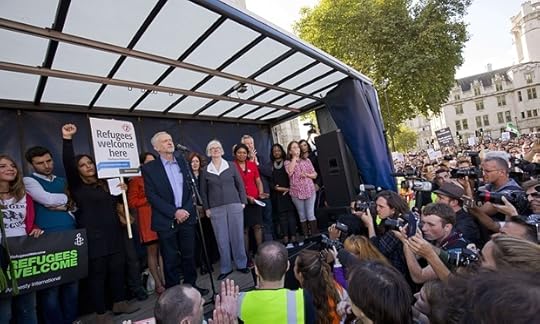
When Corbyn and I both spoke at a peace event in London four years ago, he was introduced by Andrew Murray as working in Parliament with "a pack of war lords." Corbyn agreed: Parliament is made up of war lords and war criminals, he remarked.
Corbyn at that point credited the Stop the War Coalition with having helped to prevent an attack on Iran in recent years, just as I believed the US peace movement deserved credit, and does so again this year.
Corbyn called the idea that more time was needed to finish a job in Afghanistan a "load of tosh." He also pointed out that the two sides fighting in Libya could exchange parts for their rifles, because they both had rifles provided by Britain.
Corbyn doesn't just call war criminals "war criminals." He intends to see them prosecuted, including Tony Blair, whom Corbyn wants to see face charges for the 2003 attack on Iraq, which Corbyn of course opposed.
Corbyn doesn't just oppose militarism rhetorically. He wants to shut it down. He opposes the Trident nuclear boondoggle and intends to withdraw the UK from NATO. What other NATO members might follow the UK's lead?
Corbyn doesn't just express nice sentiments about a distant future without nuclear weapons. He advocates unilateral disarmament by the UK, in compliance with the non-proliferation treaty.
Corbyn doesn't just muse about non-military solutions in Syria but seeks to find them and to prevent military action that makes crises worse. He plans to halt British airstrikes from planes or drones in Syria. He also mentions the uncomfortable topic of "some of our supposed allies in the region" providing weapons and funding to ISIS -- and proposes to cut that off rather than fueling the fire with more weapons and attacks.
Corbyn is even opposed to the steady buildup of hostility toward Russia, and faults NATO for expanding and the West for creating the crisis in Ukraine. He doesn't excuse actual misdeeds by Russia, but faults U.S. and European aggression and hypocrisy.
And, though this may be difficult for Americans to imagine, Corbyn opposes the mass slaughter of Palestinians by Israel.
Hours after being elected leader of the Labour Party, Corbyn spoke on Saturday at a huge pro-refugee rally in Parliament Square, and blamed the refugee crisis on its cause, declaring that he would not support the past policy of rushing about the world launching wars.
Americans have come to believe that politicians who support, promote, tolerate, or fund wars can be "war critics" by proposing various tweaks to the war machine.
Bernie Sanders focuses on money issues, taxing the rich, spending on the poor, but has thus far been permitted to engage in the general practice of speaking only about the 46% of federal discretionary spending that it not military. Nobody has asked him about the 54% that by the calculation of National Priorities Project is military. Nobody has asked him if Eisenhower was right that military spending produces wars. Here are 25,000 people who want to know whether and how much Sanders would want to cut military spending.
Sanders is silent on the public support for two, not one, great sources of revenue: taxing the rich (which he's all over) and cutting the military (which he avoids). When he is asked about wars and says Saudi Arabia should pay for and lead them, nobody has followed up by asking whether the wars are themselves good or not or how the theocratic murderous regime in Saudi Arabia which openly seeks to overthrow other governments and is dropping US cluster bombs on Yemen will transform the wars into forces for good. Since when is THAT "socialism"?
If you go to Bernie's website and click on ISSUES and search for foreign policy it's just not there. In the United States, candidates for high office are permitted to just be silent on how much they'd cut the military, even within a range of $100 billion. Does Sanders, or do any of the other candidates, favor $45 billion in more free weapons for Israel paid for by the U.S. public whom Sanders usually wants to spare lesser expenses than that? Who knows.
Jeremy Corbyn just won leadership of the Labour Party by promoting socialism at home and abroad. What are we yanks afraid of?
Film Review: This Changes Everything
I thought the cause of climate destruction was political corruption, but I thought the cause of so little popular resistance was ignorance and denial. Naomi Klein's new film This Changes Everything seems to assume that everyone is aware of the problem. The enemy that the film takes on is the belief that "human nature" is simply greedy and destructive and destined to behave in the way that Western culture behaves toward the natural world.
I think that is an increasingly common frame of mind among those paying attention. But if it ever becomes truly widespread, I expect it to be followed by epidemics of despair.
Of course, the idea that "human nature" destroys the earth is as ridiculous as the idea that "human nature" creates war, or the idea that human nature combined with climate change must produce war. Human societies are destroying the climate at vastly different rates, as are individuals within them. Which are we to suppose are "human nature" and which acting in violation of the same?
I think it's safe to assume that those not recognizing the climate crisis are going to be brought to recognize it along an exponentially rising curve, and it's possible that treating an audience as if they all already know the problem is a helpful way to get them there.
The problem, this film tells us, is a story that humans have been telling each other for 400 years, a story in which people are the masters of the earth rather than its children. The fact that a story is the problem, Klein says, should give us hope, because we can change it. In fact, we largely need to change it to what it was before and what it has remained in some of the communities featured in the film.
Whether that should give us hope is, I think, a whole different question. Either we're past the point of being able to maintain a livable climate or we're not. Either the conference in Copenhagen was the last chance or it wasn't. Either the upcoming conference in Paris will be the last chance or it won't be. Either there's a grassroots way around the failure of such conferences, or there isn't. Either Obama's drill-baby-Arctic drilling is the final nail or it isn't. Same for the tar sands featured in the movie.
But if we are going to act, we need to act as Klein urges: not by intensifying our efforts to control nature, and not by seeking out a different planet to ruin, but by re-learning to live as part of the planet earth rather than its controllers. This film shows us horrific images of the wasteland created in Alberta to get at the tar sands. Canada is dumping some $150 to $200 billion into extracting this poison. And those involved speak in the film as if it were simply inevitable, thus allowing themselves no blame. In their view, humans may be masters of the earth, but they clearly are not masters of themselves.
In contrast, This Changes Everything shows us indigenous cultures where the belief that the land owns us rather than the reverse leads toward sustainable and also more enjoyable life. The film seems to focus on the immediate local destruction of projects like the tar sands and others, rather than the climate of the whole planet. But the point of featuring acts of local resistance is clearly to show us not only the joy and solidarity that comes in acting for a better world, but also to model what that world could look like and how it could be experienced.
We're usually told that it is a weakness of solar energy that it must function when the sun shines, a weakness of wind energy that it must wait for the wind to blow -- whereas it is a strength of coal or oil or nuclear that it can render your home uninhabitable 24-7. This Changes Everything suggests that renewable energy's dependence on nature is a strength because it is part of how we must live and think if we are to cease attacking our natural home.
Hurricane Sandy is featured as a hint of how nature will eventually let humans know who is really in charge. Not in charge because we haven't developed good enough technology yet to truly master it. Not in charge because we need to alter our energy consumption a little as soon as Wall Street approves. Not in charge because of a quirk of corruption in our government that fails to help people in danger while bombing other distant people to control more fossil fuels with which to bring on more danger. No. In charge now and forever, whether you like it or not -- but perfectly happy to work with us, to live in harmony with us, if we live in harmony with the rest of the earth.
David Swanson is an author, activist, journalist, and radio host. He is director of WorldBeyondWar.org and campaign coordinator for RootsAction.org. Swanson's books include War Is A Lie. He blogs at DavidSwanson.org and WarIsACrime.org. He hosts Talk Nation Radio. He is a 2015 Nobel Peace Prize Nominee.
Follow him on Twitter: @davidcnswanson and FaceBook.


